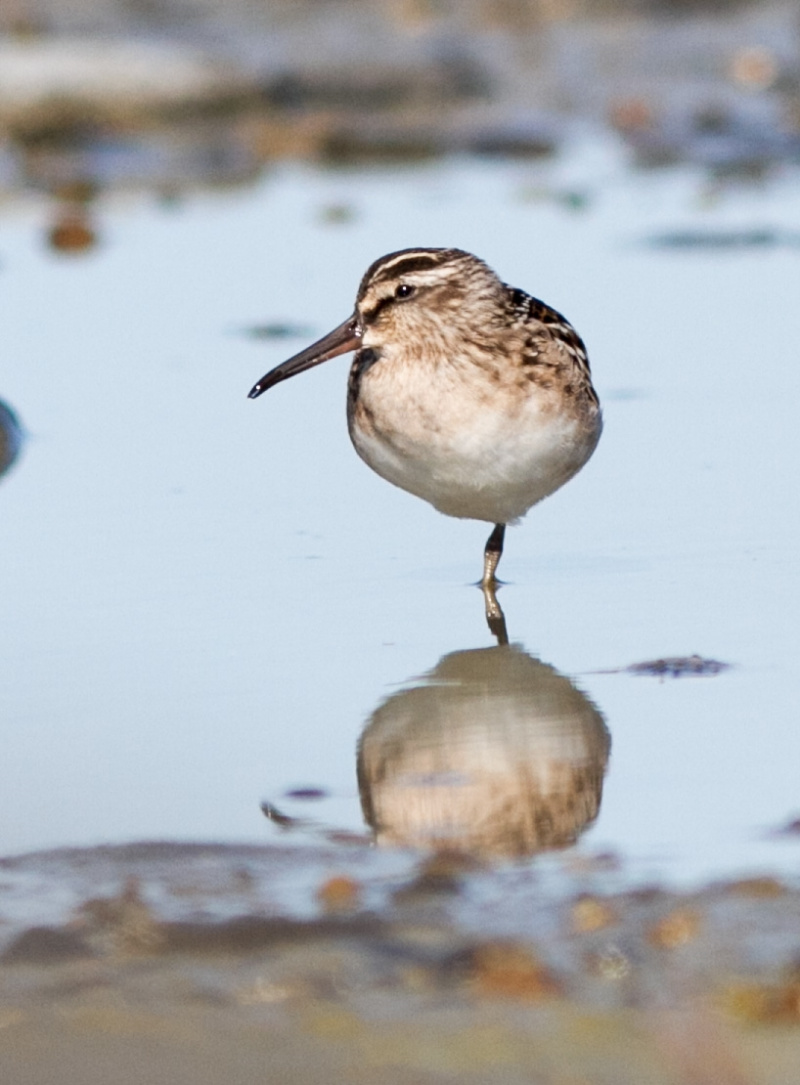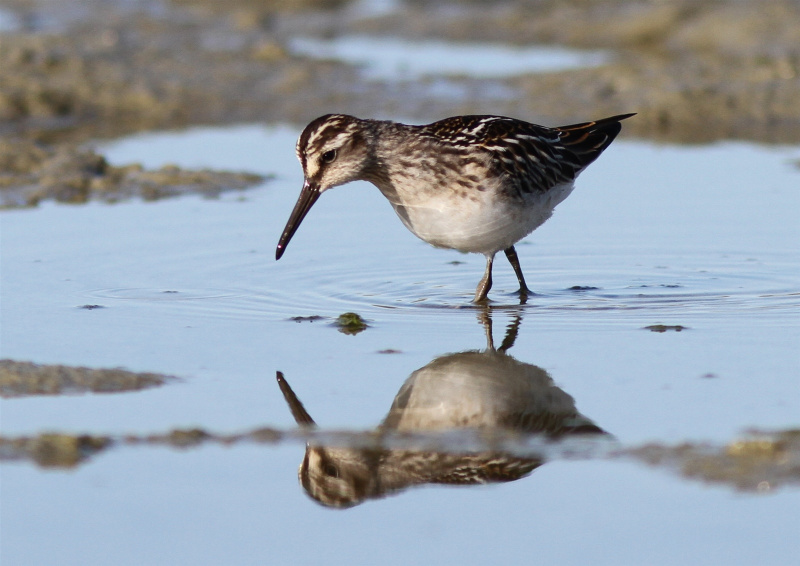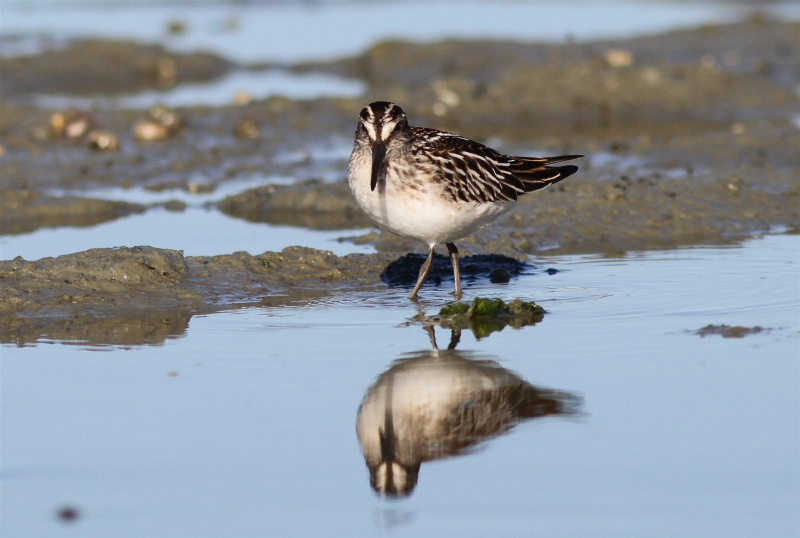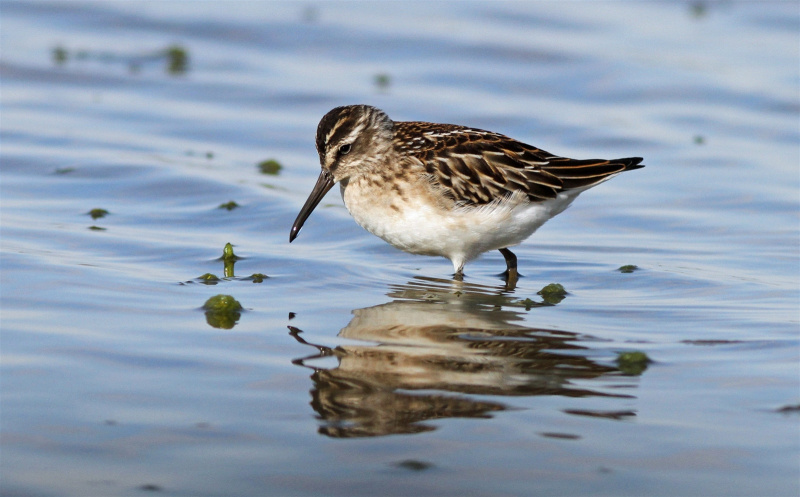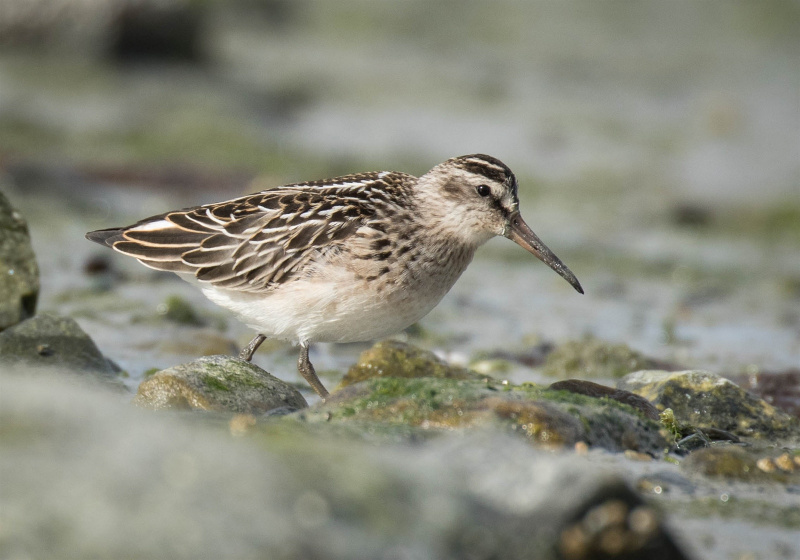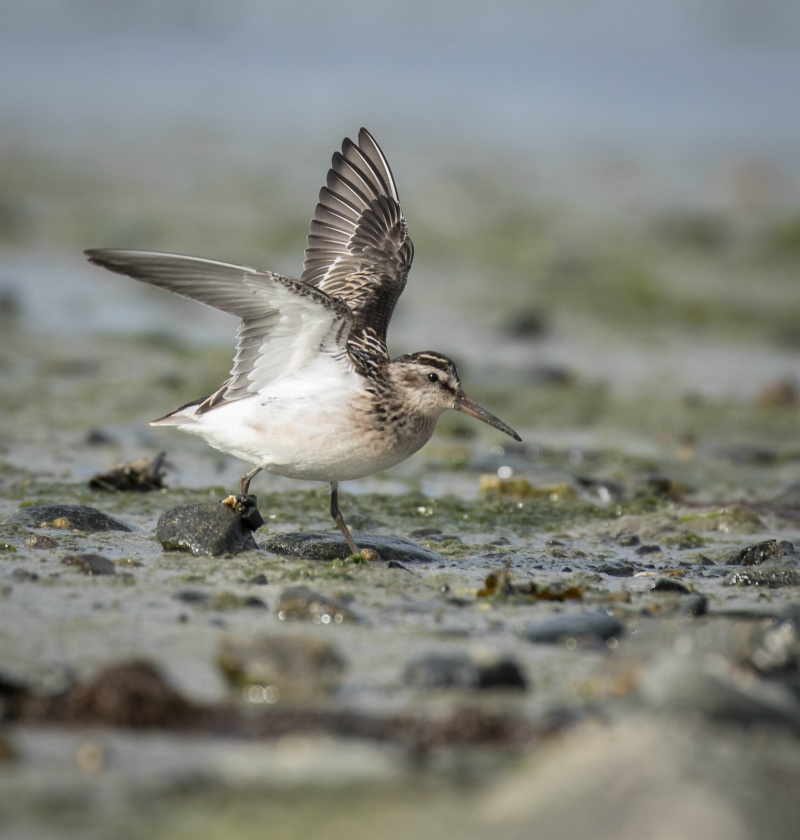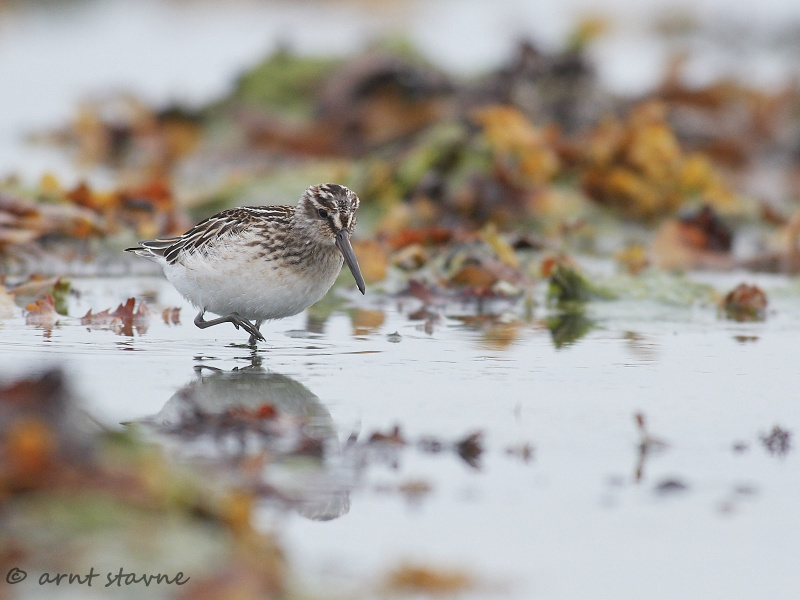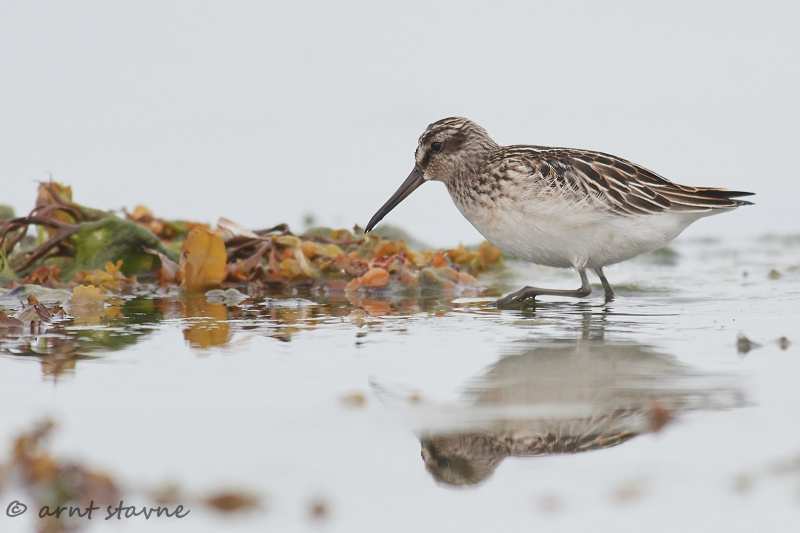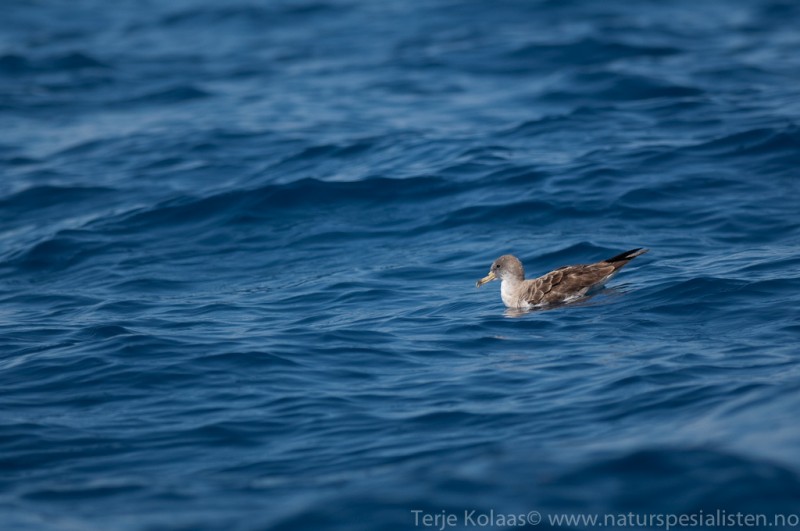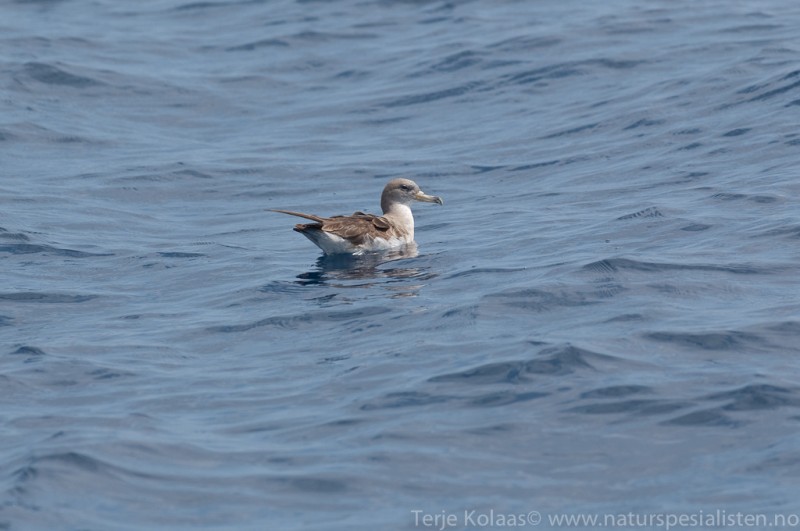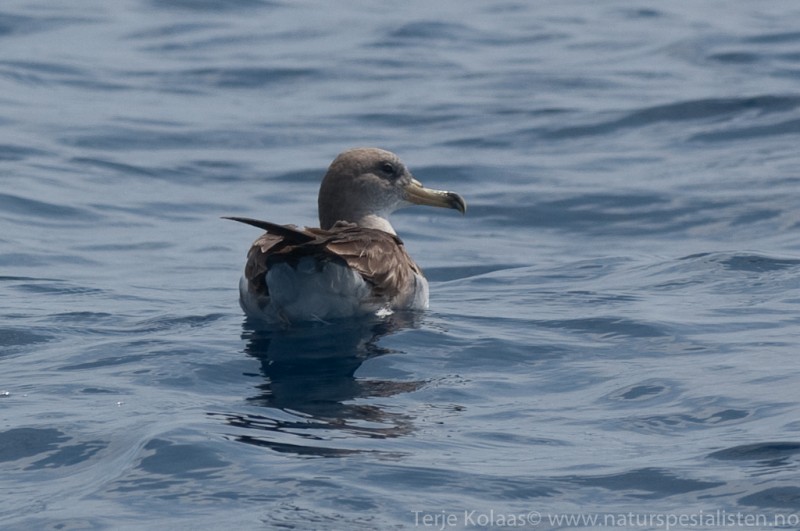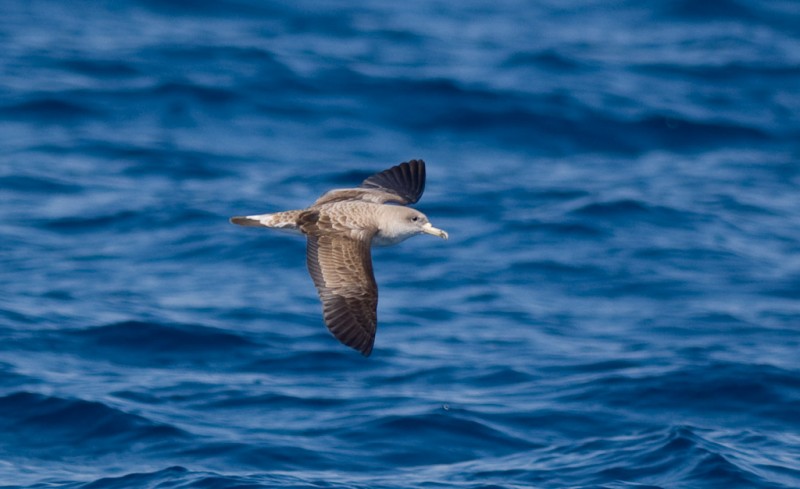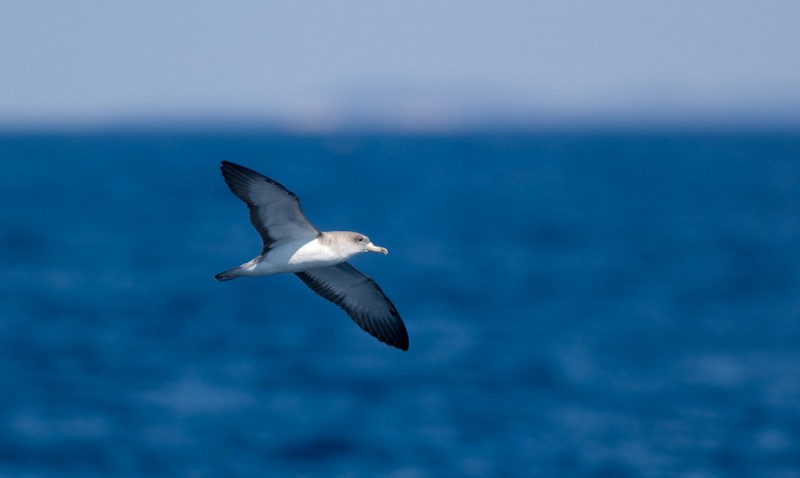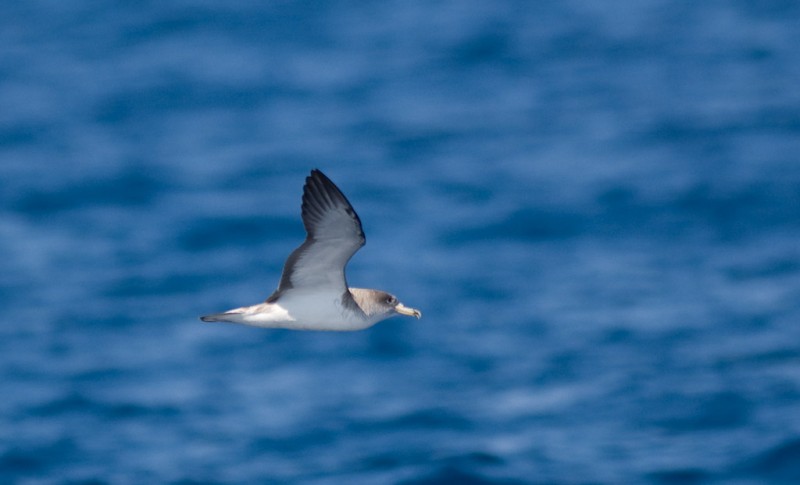Broad-billed Sandpiper (Calidris falcinellus)
Cory's Shearwater (Calonectris diomedea)
Can be mistaken for a Dunlin but differs in characteristic double supercilium, unmarked belly and shorter legs. Bill is thicker, almost swollen at base, and more distinctly bent at tip. Overall impression much more contrasty than Dunlin. Winter plumage with dark centres of tertials, and finely striped crown. Juveniles with white V-shaped markings on back, similar to Little Stint. Wing bars and tail markings resembles Dunlin in flight. Moves relatively slow when feeding.
Sound:Distinct contact call. A trilling "drrroiiit" with a peculiar timbre, ending with a rapid rise of pitch. Song often preceded by the contact call, which then fuses into a continuous vibrating trill.
Song:
Distribution:
Xeno-canto: map
Ecology:Birdlife ecology
Links:
Observation.org Latest observations
Image search Flickr NB! May give other species
CCA large shearwater with pale upperparts and heavy, yellowish bill. Large grey head. The grey neck forms a diagnostic, contrasting line from wing base to base of bill (most other shearwaters have white neck-sides). Armpits usually pure white. Underside of wings white, framed by black flight feathers. Flight action calm and distinct. Long glides alternates with 3-4 slow wingbeats. Wingtips always bent downwards, and wings slightly angled back. Often soars. Differs from Fulmar in dark tail, grey head, long, narrow wings and longer bill. The two subspecies C. diomedea and C. borealis, are somtimes treated as different species. Field identification of these usually impossible, and requires ideal conditions. Hand of borealis is darker due to no white fringes to primaries. In diomedea the white in the coverts extends in a white wedge into the hand, through the base of the primaries.
Sound:Very vocal at breeding ground. Calls with a very nasal, comical, mewing "ke-kooeee", ending with falling pitch, like a releasing sigh or moan. Sometimes reltively pure, other times very hoarse and raucous.
At breeding ground (C. d. borealis):
Distribution:
Wikipedia: map (se also Xeno-canto below)
Ecology:Birdlife ecology
Links:
Observation.org Latest observations
Image search Flickr NB! May give other species
CC
 English
English Albanian
Albanian
 Armenian
Armenian
 Bulgarian
Bulgarian
 Catalan
Catalan
 Croatian
Croatian
 Czech
Czech
 Danish
Danish
 Dutch
Dutch
 Finnish
Finnish
 French
French
 Georgian
Georgian
 German
German
 Greek
Greek
 Hungarian
Hungarian
 Italian
Italian
 Latvian
Latvian
 Lithuanian
Lithuanian
 Macedonian
Macedonian
 Norwegian
Norwegian
 Polish
Polish
 Portuguese
Portuguese
 Romanian
Romanian
 Russian
Russian
 Sami : Lule sami
Sami : Lule sami
 Sami : North sami
Sami : North sami
 Sami : South sami
Sami : South sami
 Scientific names
Scientific names
 Serbian
Serbian
 Spanish
Spanish
 Swedish
Swedish
 Ukrainian
Ukrainian


